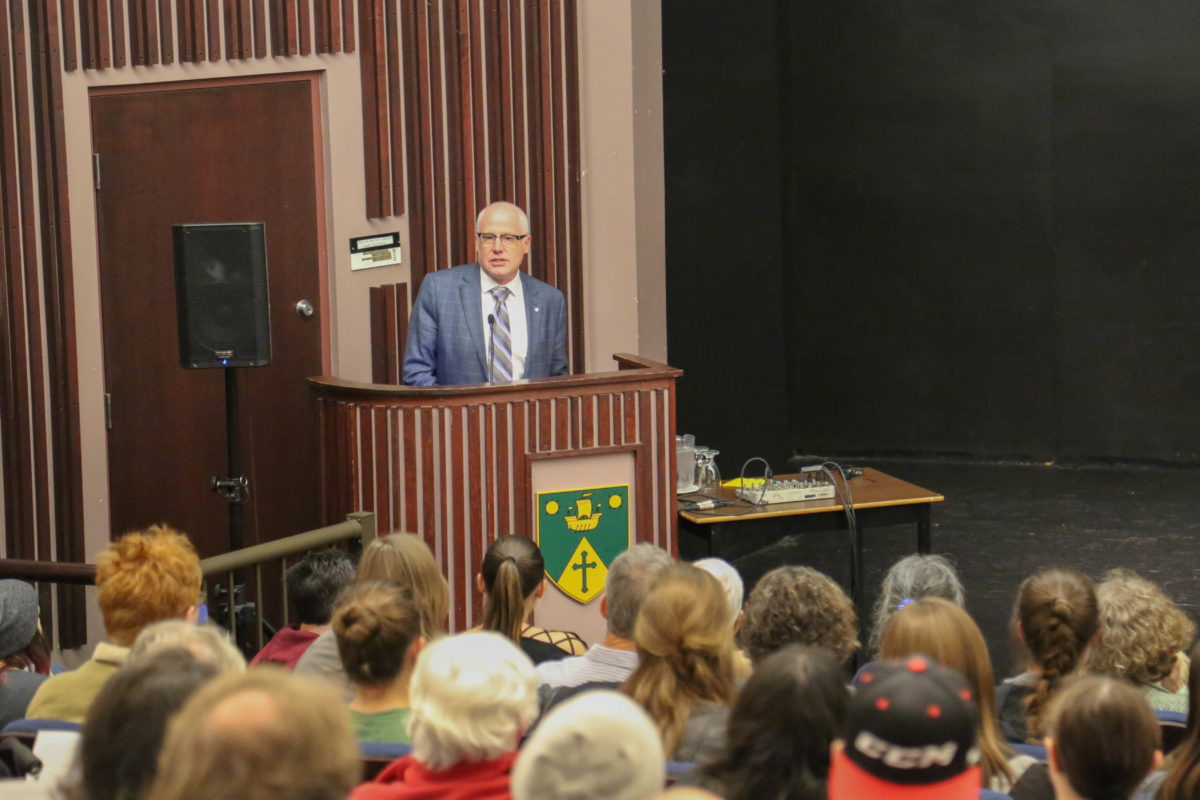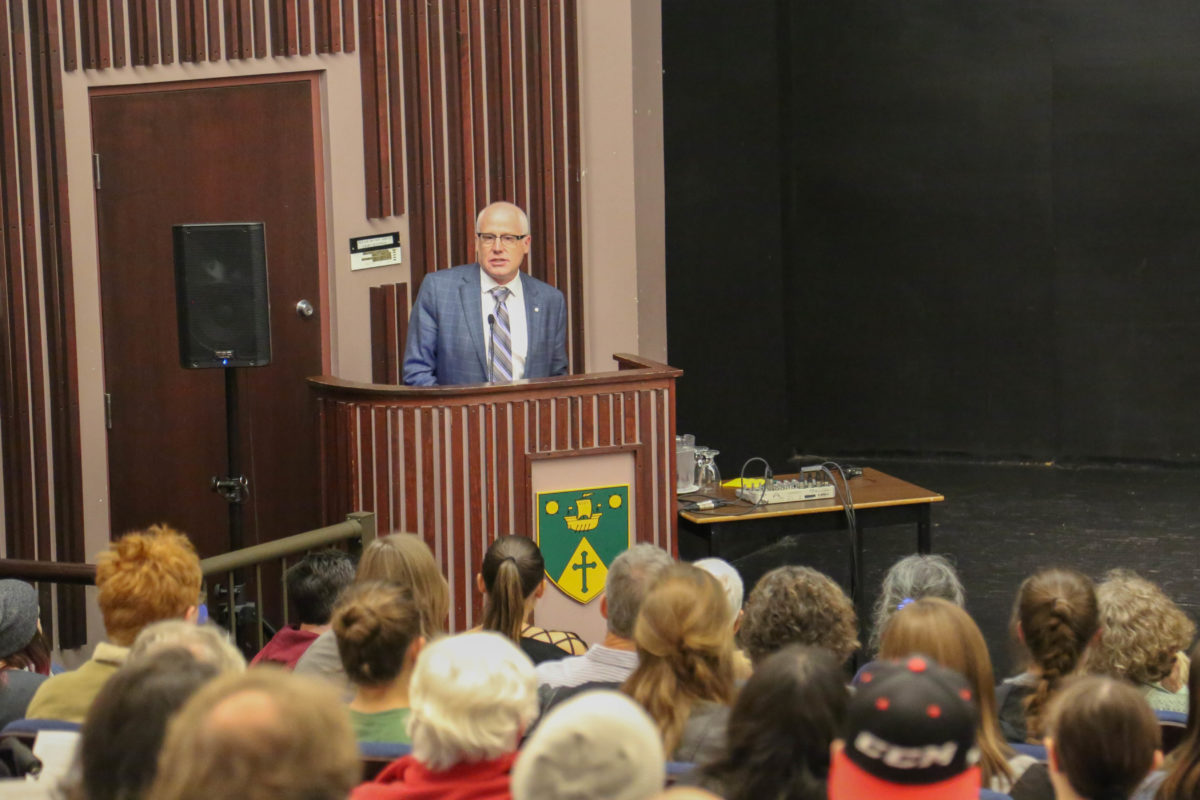
In his lecture at St. Thomas Wednesday, the secretary-general of Amnesty International recounted what one European ambassador told him about how Canada’s recent approach to human rights is viewed by outsiders.
“He described us as sometime a champion, often an obstacle, most frequently a puzzle and never predictably a partner,” Alex Neve said.
In front of a Ted Daigle Auditorium that had people sitting in the aisles, Neve gave the annual Vigod Memorial Lecture on the same day Justin Trudeau and his cabinet were sworn in. . For Neve, with a new federal government, this is the time for Canada to become the human rights champions we once were.
Neve outlined a 12-point agenda Canada should adopt to become “the land of human rights” we once were seen as.
Some were concrete plans that seem close to implementation, such as launching an independent national inquiry into the missing and murdered aboriginal women across the country or resettling more Syrian refugees to Canada.
“Let me tell you, there is a big job opening up on the world stage for some country to step up and say, ‘we will lead,’” Neve said about the Syrian Refugee Crisis. “Right now it is a cacophony of incoherence.”
Other points, like having Prime Minister Trudeau go to bat for Canadians persecuted abroad, or for steps to be taken to ensure the Trans-Pacific Partnerships agreement, terms or provisions do not negatively affect the enjoyment of human rights, Canadians will have to wait to see if they come to fruition.
Neve also outlined several values and principles Canadians should adopt towards protecting human rights both internally and internationally.
Some of these values include: equality for women and the protection of their reproductive rights, regaining the desire to use the International Criminal Courts, or implementing the Responsibility to Protect Principle ¬– an international norm that says if a state cannot or will not protect its population, the international community has the duty to intervene.
After the lecture, Graydon Nicholas, endowed chair of Native Studies and former Lieutenant Governor of New Brunswick, Irwin Cotler, international human rights lawyer and former minister of justice and attorney general of Canada, and Senator Noël A. Kinsella joined him on stage for a panel discussion.
“We do need to stand ready,” Neve said when how to keep the government accountable. “We need to continue to speak out as measure come out if we don’t think they’re going as far as they need to go.”

